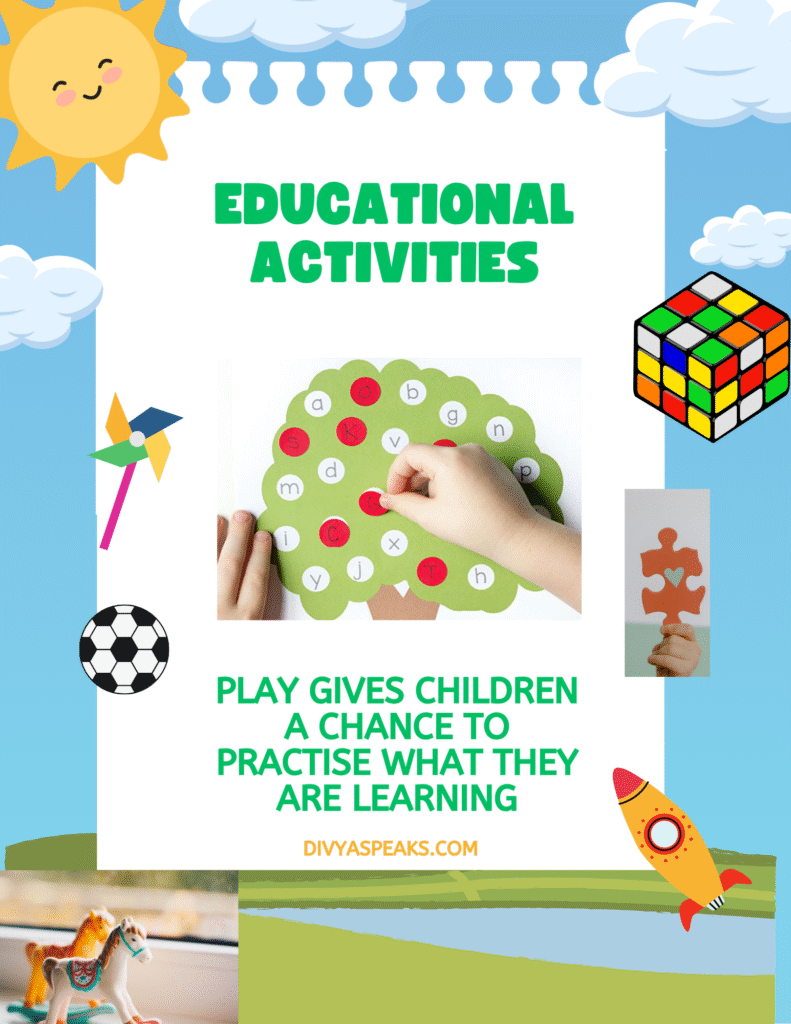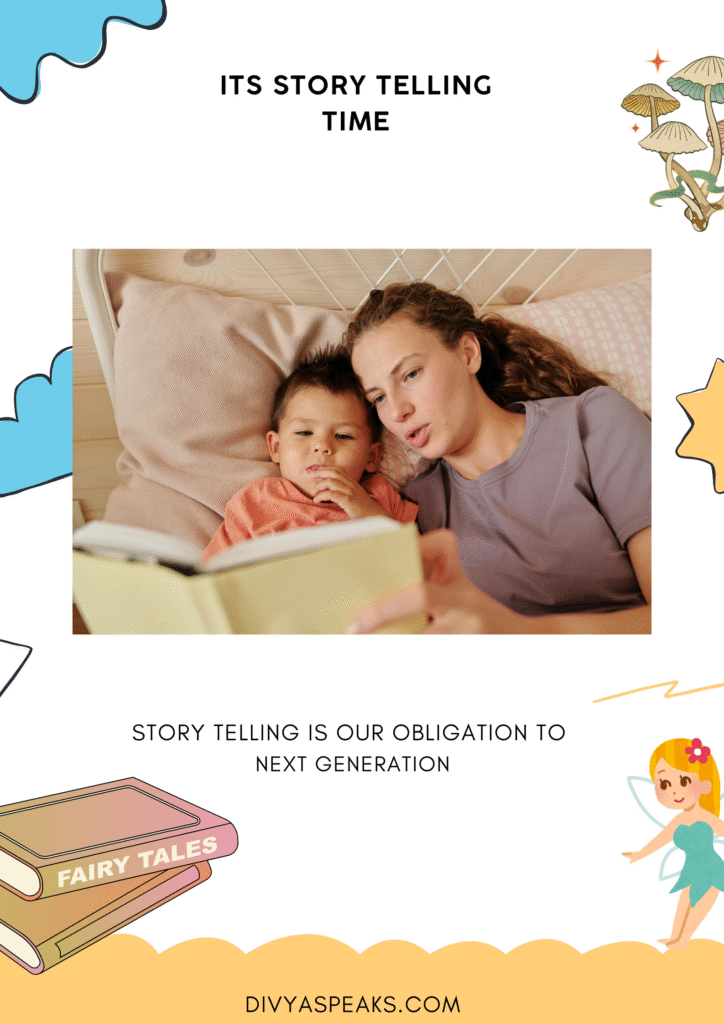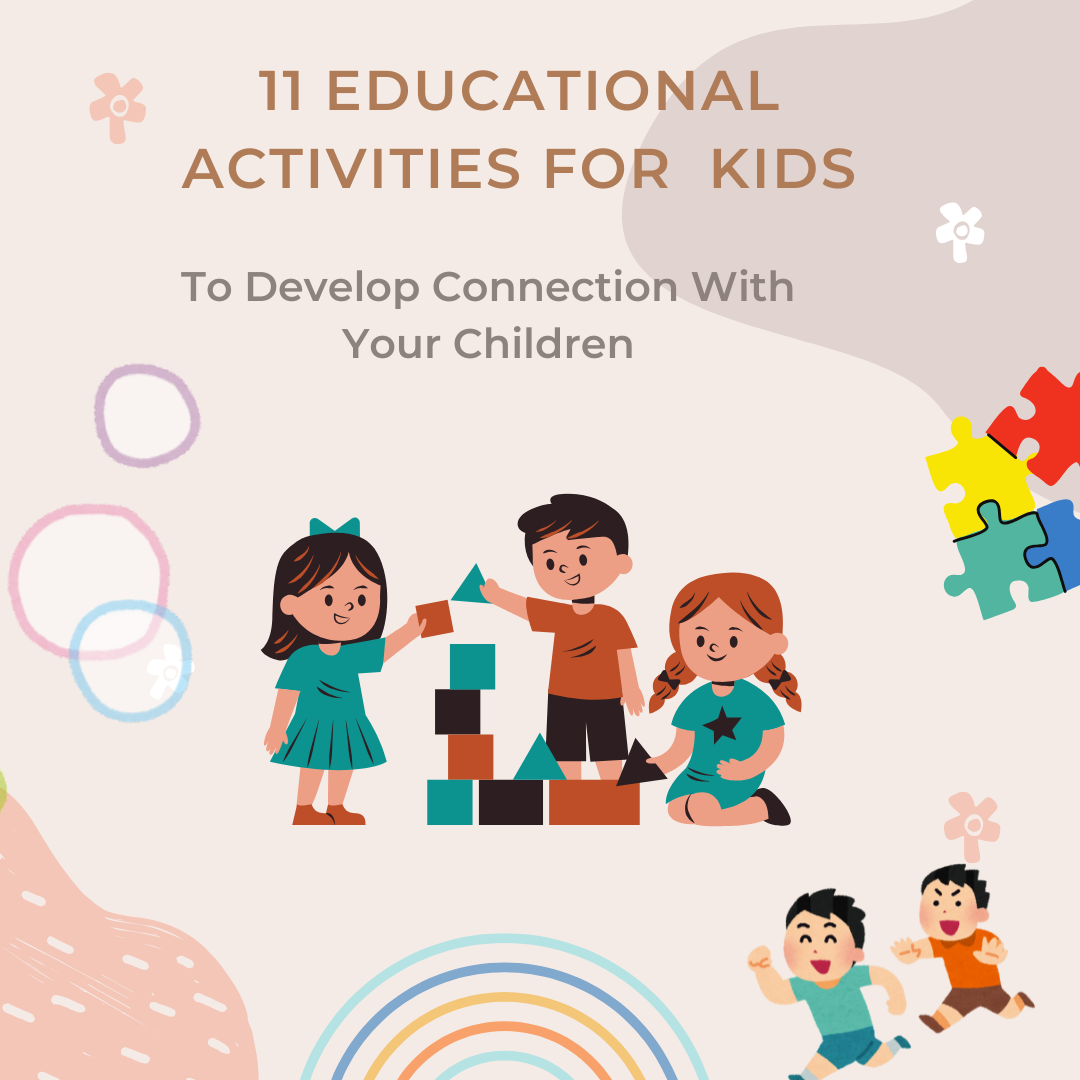In today’s fast-paced world, Educational Activities are one of the best techniques to connect with your children, and they have never been more important—or more challenging. Between work, school, and Electronic distractions, many parents find themselves longing for meaningful ways to engage with their kids. The good news? You don’t need fancy tools or expensive resources to build strong bonds. Some of the most powerful moments come from educational activities that naturally spark conversations, learning, and laughter.
In this guide, I’ll explore 5 parenting activities to develop connection with your children, with many more home-based educational ideas that everyday routines turned into growth-filled adventures.
Why Educational Activities at Home Matter
Imagine your home as a mini classroom—but warmer, cozier, and filled with love. Educational activities at home aren’t just about boosting academic skills to kids; they’re about nurturing curiosity, developing life skills, and most importantly, creating an emotional connection.
These moments tell your child: “I see you. I hear you. I value our time together.”
When you integrate learning with bonding, your child doesn’t just become smarter—they feel safer, more supported, and more connected to you.

1. Storytelling Time: Ignite Imagination and Heartfelt Conversations
Reading is great—but storytelling takes it to the next level. Set aside 20 minutes each evening where you and your child make up stories together. You can take turns adding characters, building the plot, or even creating a mini “family novel.” Which will also lead to increased children communication thoughts and feelings, improve Verbal Proficiency, and also Enhance Listening skills.
Why this works:
- It builds language and cognitive skills
- Encourages creativity
- Promotes emotional expression

Bonus tip: Let your child create drawings to go with the stories. It adds a visual layer to the connection.
2. Kitchen Classroom: Cook, Measure, Learn, Bond
Cooking is the ultimate hands-on learning experience. It covers math, science, reading, and even cultural awareness. Let your child pick a recipe once a week, then walk through it together.
Educational skills learned:
- Measuring ingredients = Math
- Watching dough rise = Science
- Reading recipes = Literacy
- Discussing origin of dishes = Geography
This is one of the best parenting activities to develop connection with your children because food naturally brings people closer—and so does laughter over a flour-filled kitchen.
3. DIY Science Experiments: Learn Through Play
You don’t need to be a science teacher to have fun with experiments. Try easy, safe activities like:
- Making a homemade volcano with baking soda and vinegar
- Growing a bean plant in a clear jar
- Creating a rainbow with a glass of water and sunlight
How this helps connection:
These activities open the door to questions, wonder, and shared discovery. Plus, your child sees you learning alongside them—and that’s incredibly powerful.
The below are some activities to do with kids
- Science Experimenting Kits
- Rock Painting Kit
- Kids Craft Using Beeds
- PomPom DIY Art
- Brain Building Games For Kids
4. Gratitude Journals: Connect Through Reflection
This one might not seem “educational” at first glance—but it’s deeply transformative. Sit down together every evening with a small journal and write three things you’re grateful for that day.
Benefits:
- Teaches mindfulness and emotional intelligence
- Strengthens writing skills
- Builds a positive mindset
When kids learn to express appreciation, they also learn empathy—and your reflections help model that.
5. Create a Family Book Club
Once a month, choose a book that you and your child can read together—either aloud or independently, depending on their age. Then set up a fun “book club” night with snacks, questions, and even character dress-up!
This does several things:
- Encourages deeper thinking
- Promotes emotional discussion through story characters
- Builds trust and safe space for big conversations
This is more than reading. It’s bonding disguised as learning.
More Fun and Effective Educational Activities at Home
While those five activities are our go-to favorites, there’s a world of other options you can try based on your child’s age, interests, and energy levels. Here are more enriching ideas that make home learning enjoyable.
6. Nature Journaling: Learning Beyond Walls
Even a walk around your neighborhood can turn into an educational adventure. Collect leaves, flowers, rocks, or bugs—and create a nature journal at home. Research the items you collect, draw them, and describe their colors, shapes, and functions.
Why it’s awesome:
- Develops observation skills
- Encourages writing and artistic expression
- Connects kids with the environment
It also slows things down, creating space for meaningful talks about life and nature.
7. Themed Weeks: Dive Deep into Interests
Each week, choose a theme—like dinosaurs, space, or insects—and build your home activities around it. You can read books, watch documentaries, do crafts, and play related games.
Why it works: Kids love immersive play. When you dive into their world, you show up in a way that’s unforgettable.
8. Home Economics Projects
Teach real-world life skills in fun ways. Let them:
- Create a budget for a pretend shopping trip
- Learn how to sew a button or fold laundry properly
- Plan a meal based on nutrition labels
These activities prepare them for independence and build confidence in both of you.
9. Puzzle Time & Board Games
Don’t underestimate the learning power of games. Strategy games like chess, logic puzzles, or Scrabble boost problem-solving, spelling, and social skills.
Connection tip: Let your child teach you how to play sometimes. Switching roles empowers them and makes learning feel mutual.
10. Art and Music Exploration
Encourage kids to express themselves through drawing, painting, and music. Try:
- Making DIY instruments
- Listening to music from different cultures
- Hosting a “gallery day” with their artwork displayed
Art is a non-verbal bridge between hearts—especially for kids who struggle to express emotions with words.
11. Create a Home Museum
Let your child pick a topic they love (like space, bugs, or ancient Egypt), then help them gather “exhibits.” Use shoeboxes, cardboard, printed facts, and drawings to create a mini museum at home.
Why this is incredible:
- It fuels ownership of learning
- Teaches research and presentation skills
- Sparks long conversations about interests and dreams
It’s also a great rainy-day or weekend project.
12. Family Podcast or Video Diaries
Record short audio or video episodes discussing your day, a topic of interest, or even interviews with each other. Kids can help write scripts, create sound effects, or edit using simple tools.
Learning layers include:
- Public speaking
- Editing tech
- Listening and storytelling
Most of all, it captures memories and strengthens emotional bonds.
Making Time for Connection: Why Intentionality Matters
Let’s be real—some days, you’re exhausted. And that’s okay. The goal isn’t perfection—it’s presence. Even 15 intentional minutes a day doing something educational can shape your child’s worldview and deepen your connection.
These 5 parenting activities to develop connection with your children (and the many more we shared) are not about checking a box. They’re about planting seeds: for love, trust, and lifelong learning.
Final Thoughts: Education + Emotion = Impact
In a world of busy schedules and constant notifications, choosing to slow down and connect with your children through educational activities at home is a radical act of love.
It says: “I’m here, and I care enough to grow with you.”
Whether it’s through storytelling, cooking, science, or simple gratitude journaling, the key is consistency, creativity, and compassion. These shared experiences will become the stories your children remember—and the lessons that shape who they become.
Also, read the below article for Brain Health activity.

Well written, Divya. Very Useful in today’s generation parents